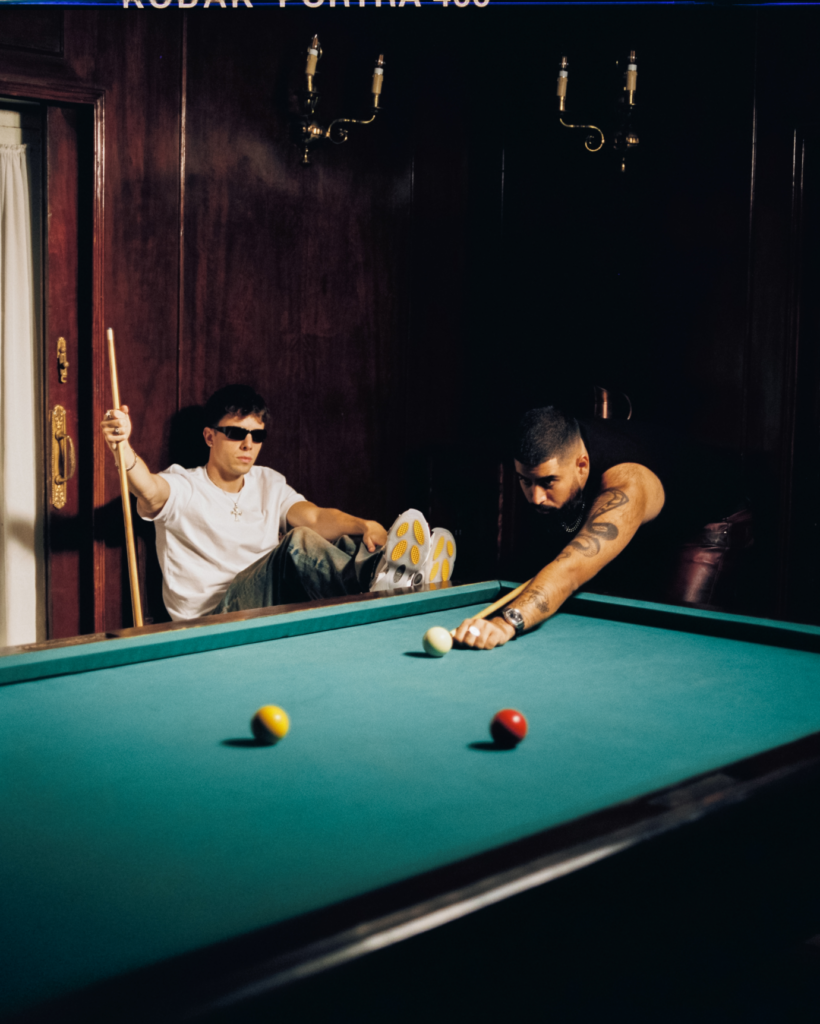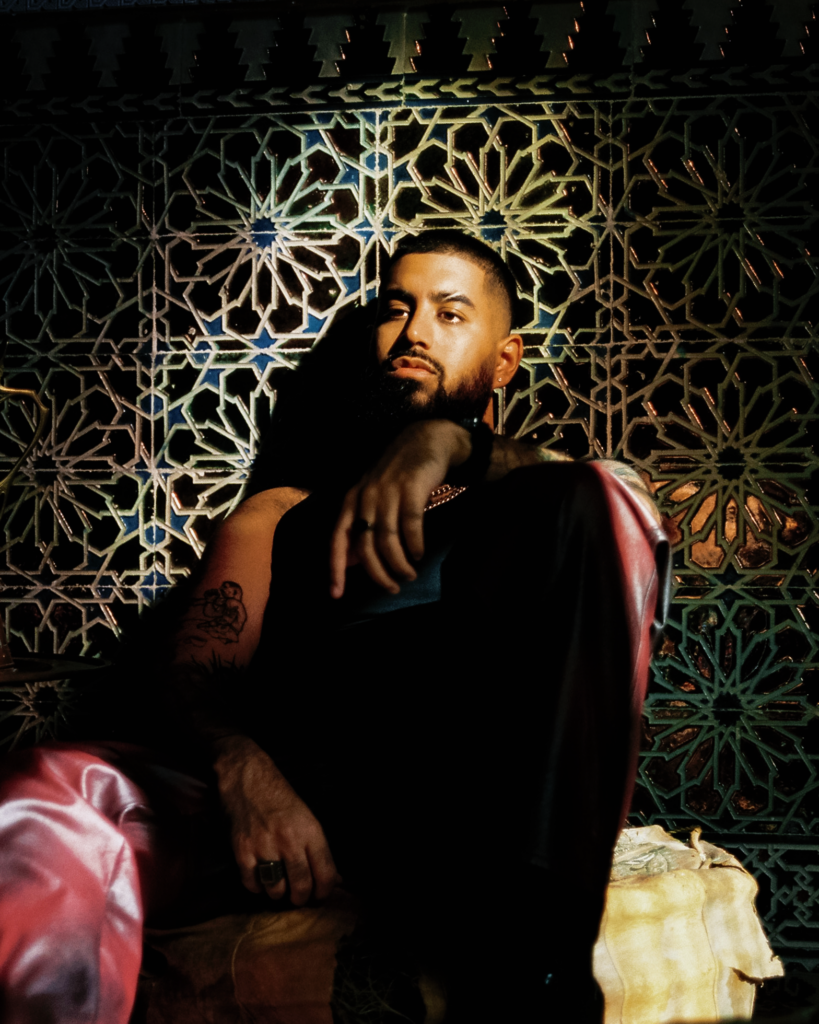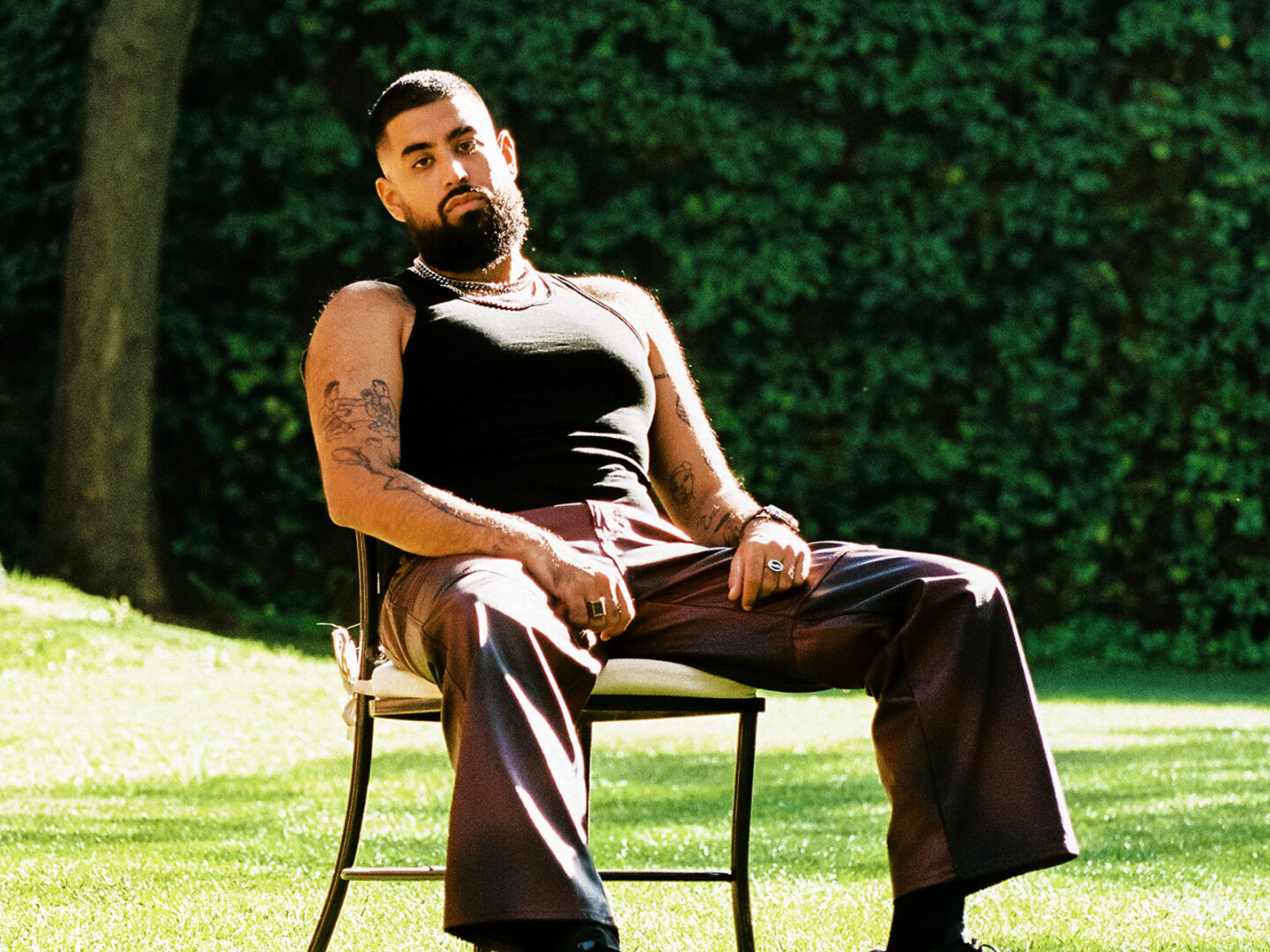For twenty-five months, Abhir Hathi hibernated. Some singles and collaborations with great artists of the scene have kept him in the limelight since he released Lazos y Nudos at the end of 2021. Throughout his entire journey as an artist, the Canary Islander with Indian roots has shone with his own light and now, he arrives with his latest work, his most authentic and personal album to date. ‘Brown Boy’, is what you need to listen to if you really want to know who the real Abhir Hathi is. At Highxtar, we took the opportunity to talk to him about the project in a conversation that delves into his origins, beliefs, and what it means to be at peace with himself.
HIGHXTAR(H)- Hello Abhir. First of all, how are you? How are you living the reception of Brown Boy?
ABHIR HATHI(A.H)- I went out with no expectations and the truth is that everything that is coming feels like a blessing, I am super grateful to all the people who listened to me and who are listening to me now because the feedback is being very positive. My attitude was ‘may it be what God wants’, I feel I owe him one.

(H)- It seems like an album that defines you a lot not only as an artist but also yourself. Is it your most sincere project to date? How has the whole process felt?
(A.H)-Without a doubt and by far. in songs like ‘Abel’, ‘GC-1’, or ‘Bombay a las Palmas’ I write as if I’m talking to you and having a conversation with you so it feels very cabron that the audience feels the phrases as if they were from their own life.
(H)- If you were to introduce “Brown Boy” to a person who doesn’t know you at all, how would you introduce him?
(A.H)- Well, Brown Boy is an album where out of more than 50 ideas, 17 have been left. We spent a lot of time in the studio with my producer Saint Lowe and myself. We even delayed the album twice so that those 17 songs would be the collection we envisioned at the beginning.
(H)- Who is the woman on the album cover? Are you related to her?
(A.H)- I’ll tell you about that later when the vinyls come out…
(H)- Do you remember a turning point in your career that solidly shaped who you are today? The turning point, something that marked the before and after.
(A.H)- In the summer of 2022, I looked at my entire discography and realized I was going on 27 and still hadn’t done something that really stirred me. That night I had an anxiety attack and started questioning why that was happening to me. Now with Brown Boy gone, I value all the music that has gone before so much more.
(H)- Your Indian roots are very present in your songs. It was your grandparents who moved to the Canary Islands, have you always been so proud of your roots?
(A.H)- Yes, but I had not found a way to make it public until now.
(H)- Has being in between two cultures with different religions ever made you feel out of place?
(A.H)- Yes, that’s what Brown Boy is all about. I used to feel out of place and now it’s what I’m most proud of.
What made me feel out of place or displaced was the lack of a total sense of belonging, both with the Canarian culture and with the Indian culture. In the Canary Islands I felt like an Indian and in India I felt like a Canarian, but I didn’t end up being either. This was in my head and that was it. The moment I realized that I am both and not only that, but that I enjoy being both, I realized the potential I had in front of me and I started to see it reflected in the music. Then it spread to all the artistic areas of my project and now I feel more connected to it than ever.

(H)- You also talk a lot about religion in your songs, or at least about God and faith. In “Abel” you seem to have a little crisis and in other songs like “Hijo de Inmigrante” you seem to recover it. How is your relationship with religion?
(A.H)- My favorite song of the album is in fact ‘Abel’. My relationship with religion and faith has been intermittent. This is because I don’t share the values of the church but I do rely on what God is to me.
(H)- You say “Wagwan” quite a lot in your songs, do you have many Jamaican friends? You lived in London for a while, has this been a determining factor in your style of music?
(A.H)- I don’t have Jamaican friends but Londoners/Nigerians, and I’m a big fan of slang in general. England opened my eyes a lot in terms of religion. I am not a Muslim, nor do I consider myself 100% Christian or Hindu but England gave me the opportunity to spend time with people of all three religions and understand similarities and differences between them. From a very young age I had a certain rejection of religion and it was there that I understood that my problem is more with the church than with faith in general. Another thing it opened me up to was Afrobeat. Most of my friends there were Nigerians, some children of immigrants and others not, they would take me out to dance at Afrobeat and Dancehall parties, which here are like reggaeton, the norm.
(H)- “Pensé en quitarme del medio pero algo me hizo clic” (“I thought about getting out of the way but something clicked”) you say in ALYX. Do you mean in the industry or have you ever thought about getting out of the way?
(A.H)- I put that in because I felt I had lost my purpose as a human being.
(H)- You collaborate with Cruz Cafune, Quevedo, and many more of your countrymen. In fact the remix of ‘Cayó la noche’ is the demonstration of how the Canary Islanders are making a team, and achieving success in the process. Do you think that more artists from the peninsula should learn from the way you support each other from the Canary Islands?
(A.H)- I think that each person has to act the way he/she feels like it.

(H)- ln your lyrics you mention brands a lot, you talk about going to Ifema …. Have you been to any fashion week outside Spain? In any case, is it an area you would like to explore more as an artist?
(A.H)- I have been to four fashion weeks but all in Madrid, because when my partner Gema has been in fashion weeks in Morocco, Milan or Egypt I have not been able to go, but I have it pending. In my checklist is that Gema parade with one of my themes someday.
(H)- In this post you say “This year I learned not to take myself so seriously, to trust in God’s plans, and to make my greatest insecurity my greatest virtue”. A lot of what you comment has to do with ego and I guess sometimes it is our worst enemy. How have you learned to deal with it in a healthy way?
(A.H)- By changing my perception of what success is, going to therapy and getting touches when I’ve needed it.
(H)- You are still an artist in full swing, what would “success” mean to you?
(A.H)- For me to succeed is to be happy, to have peace of mind, to take away the generational stress that my family came to the Canary Islands with and to do what I like with my friends.
Sigue toda la información de HIGHXTAR desde Facebook, Twitter o Instagram
